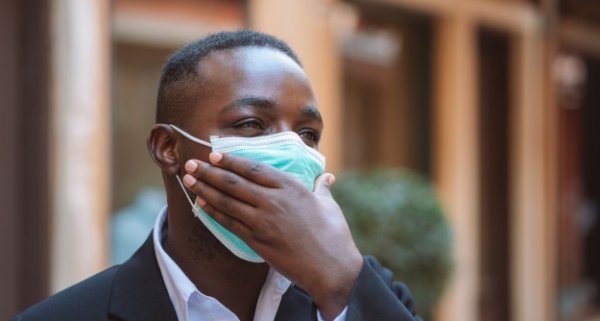Paolo Balladelli was speaking to the press at the end of the audience with President João Lourenço, in which the central theme was the pandemic of the new coronavirus and the support that the United Nations is providing to the country.
According to Paolo Balladelli, the meeting addressed the importance of some very strategic health elements, "which should be protected or accelerated" from the point of view of the United Nations.
"I refer to the theme of the masks. There is a lot of debate around the masks, but as an international public health expert, I assured the President of the Republic that having an obstacle in the face, allows to reduce the viral load, allows to reduce the exposure, even if not be it 100 percent protection, between 40 to 80 percent will decrease the likelihood of transmitting the infection, "he said.
"If we think, for example, in environments such as musseque, where social distance is practically difficult or impossible, then masks could make a difference and complement efforts for physical distance," he added.
Paolo Balladelli stressed that the masks can be made at home with fabrics, but it is necessary that the removal continue to be implemented, with the use of the mask being a complementary measure.
Regarding the protection of health personnel, he considered that this is also an important element, noting that the President of the Republic is not only "totally in agreement", but is already implementing it.
"Health professionals without masks - it has been proven in countries that are already severely epidemic - can not only get sick themselves, but also transmit the disease to other healthy people," he said.
Paolo Balladelli also defended that hospitals should only be for the seriously ill, namely with breathing difficulties.
"It wouldn't do any good for a mild patient to go to the hospital, it could be a way for him to reinfect himself or have a coronavirus infection overlap," he said.
Mass testing, according to Paolo Balladelli, "was a hot topic", stressing that, so far, only travelers have been tested, but it is necessary to speed up the use of the tests.
"And, above all, that all those confirmed are isolated", and their contacts are also followed up for later, if it is confirmed that they are also affected, "also isolate", he said.
Another concern regarding social confinement, Paolo Balladelli said, has to do with the increase in domestic violence, with the need to guarantee greater protection for women and children, as well as to avoid discrimination against refugees "because they are not the ones who are transmitting the virus, they will receive the virus ".
According to the coordinator, temperature may be an element that does not protect, but it will somewhat mitigate the pandemic in Africa and Angola.
"We know that Angola, from the point of view of the entry of the virus, is lagging behind other countries, recently we have confirmed positive cases among travelers, so, most likely, the most serious period for the country will be in late April or early de Maio ", he stressed.
For Paolo Balladelli, the country must continue to "prepare with great dedication", without "saving any resources to prevent the spread in Angola", the main focus being "a good organization, good coordination mechanisms among all, led by the Government, but with the participation of all partners ".
"I am optimistic, because we are together and this measure of the State of emergency has already been taken at an early moment of the epidemic in Angola, this will prevent us from having a catastrophic situation like other countries did," he said.







